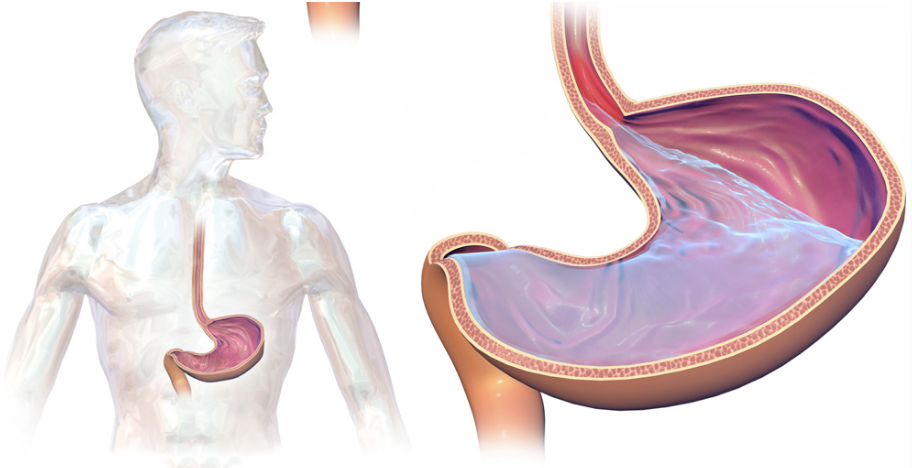

Sleep is the most integral part of anyone's life. It rejuvenates the body and maintains its overall functioning. However, some sleep disorders can greatly disrupt your sleeping patterns. These disorders can be the result of several health issues. Recent studies have shown some correlation between sleep apnea and GERD.
Sleep is disrupted by a variety of factors, including sleep apnea and gastroesophageal reflux disease (GERD). These two conditions are not only common but are often interconnected, creating a complex and challenging situation for those affected.
So, in this article, we will explore the correlation between sleep apnea and GERD, their shared risk factors, and how they can impact each other, as well as discuss management and treatment options.
To understand the correlation between these two medical conditions, you need to understand them individually:
Sleep apnea is a sleep disorder characterised by pauses in breathing or shallow breaths during sleep. It is classified into two main types according to the advancement of the disorder:
Obstructive sleep apnea syndrome is a mild form that is connected to the airway. It occurs when the muscles in the back of the throat relax excessively, leading to a blockage of the airway. This blockage then causes a problem during sleep, causing episodes of apneas (pauses in breathing). Obstructive sleep apnea symptoms include snoring, daytime sleepiness, tiredness and mood swings.
Central sleep apnea is a slightly advanced form in which the brain fails to signal the muscles to breathe properly. This could be life-threatening as the patient, while sleeping, may not realise that they have stopped breathing.
If you suspect you have it, then it's important to get central and obstructive sleep apnea treated before it's too late. This condition can be life-threatening.
Gastroesophageal reflux disease is a chronic acid reflux condition where acid flows back into the esophagus, causing irritation and symptoms such as heartburn, regurgitation, and chest pain. While GERD symptoms often occur during wakefulness, they can also manifest during sleep. This can cause discomfort and disruption in sleep patterns.
Research has shown a significant correlation between sleep apnea and GERD. Studies have shown that around 60 per cent of sleep apnea patients also suffer from nocturnal gastroesophageal reflux disease. It is quite prevalent in patients with obstructive sleep apnea. Some of the common factors that contribute to this relationship are:
Both sleep apnea and GERD are more prevalent among individuals who are overweight or obese. Acid reflux usually occurs when the lower esophageal sphincter remains open; this can easily be caused by obesity. Excess weight can lead to increased pressure on the abdomen, contributing to GERD, and also cause fat deposits around the upper airway, exacerbating sleep apnea.
A hiatal hernia occurs when part of the stomach protrudes into the diaphragm. This condition is associated with GERD and can also increase the risk of obstructive sleep apnea by further obstructing the airway.
As you age, your body goes through several changes. Things do not feel the same because of their inability to function. Acid reflux is more common in older people. Both sleep apnea and GERD become more common as people age, further linking these conditions.
Sleeping on the back (supine position) can increase the likelihood of sleep apnea and GERD. There is a high chance that this position causes your tongue and soft palate to collapse at the back of your throat, resulting in airway obstruction in sleep apnea patients. Moreover, lying flat allows stomach acid to flow more easily into the esophagus, worsening GERD symptoms.
GERD symptoms, such as heartburn and regurgitation, can disturb sleep, causing awakenings during the night. These awakenings can disrupt the sleep cycle and lead to insufficient sleep, which can, in turn, worsen sleep apnea symptoms.
As a response triggered by the symptoms of GERD, your body can go through sympathetic nervous system activity, which can subsequently cause sleep apnea. It is because this response from your body can cause the airway muscles to relax and collapse.
Some medications used to treat GERD, such as sedatives and muscle relaxants, can contribute to sleep apnea by further relaxing the muscles in the airway.
Managing both sleep apnea and GERD can be challenging due to their interconnection. However, through several strategies and plans, you can alleviate its symptoms and improve your sleep quality:
If you are facing complications due to excessive weight, it's time to execute a proper weight management plan. Losing weight through diet and exercise can help reduce the severity of sleep apnea and GERD. Furthermore, Sleeping on your side rather than your back can reduce the risk of airway obstruction and acid reflux during sleep.
Your diet can play a huge role in acid reflux. Therefore, incorporate food items in your diet that are not acidic in nature, especially before going to bed. Avoid large meals, spicy foods, and acidic foods close to bedtime to minimise GERD symptoms during sleep.
For sleep apnea patients, it's important to use CPAP masks. It is a common treatment for sleep apnea. It involves wearing a mask that delivers pressurised air to keep the airway open during sleep.
Medications like proton pump inhibitors (PPIs) can help reduce stomach acid production and alleviate GERD symptoms. However, take it only after your doctor prescribes it.
The relationship between sleep apnea and GERD is complex and multifaceted, with shared risk factors and overlapping symptoms. If you effectively manage both conditions, you can alleviate their symptoms. For that, you need to incorporate a comprehensive approach that addresses lifestyle factors, sleep positions, and, in some cases, medical interventions. If you suspect you have either sleep apnea, GERD, or both, it is essential to seek medical advice. A healthcare professional can provide a thorough evaluation, diagnosis, and treatment plan.
Leave a comment